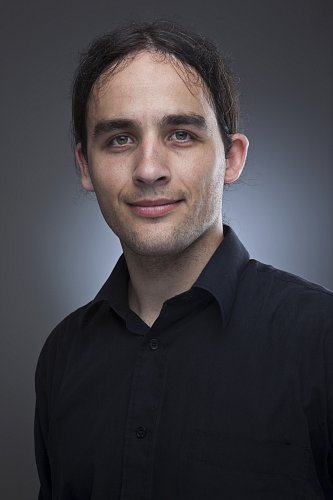Mgr. Jakub Tesař, Ph.D.
Mgr. Jakub Tesař, Ph.D.

Posts:
- Department of International Relations
E-mail: jakub.tesar@fsv.cuni.cz
Telephone: +420 296 824 648
Rooms: No. C526, Jinonice, building C
ResearcherID: M-3794-2017
Scopus Author ID: 56906769500
ORCID ID: 0000-0002-7005-3795
Rok vydání
Monographs
Chapters in monographs
Articles
- Tesař J. (2015). Quantum Theory of International Relations: Approaches and Possible Gains. Human Affairs, 25(4), 486-502. UT-WOS link
- Tesař J. (2016). Quantum Social Science: Too Elegant not to be True?. The Korean Journal of Political Criticism, 18(6), 377-386.
- Tesař J. (2020). How Do Social Norms and Expectations About Others Influence Individual Behavior? A Quantum Model of Self/Other-Perspective Interaction in Strategic Decision-Making. Foundations of Science, 25(1), 135-150. UT-WOS link
- Tesař J. (2020). A quantum model of strategic decision-making explains the Disjunction effect in the Prisoner's Dilemma game. Decision, 7(1), 43-54. UT-WOS link
- Tesař J. (2023). Quantum International Relations: a human science for world politics. International Affaires, 99(3), 1314-1316.
- Komasová S., Tesař J., & Soukup P. (2020). Perception of drone related risks in Czech society. Technology in Society, 61(May), 1-8. UT-WOS link
- Faltýnek J., Kudrle V., Tesař J., Volfová M., & Tálský A. (2019). Numerical enhancements of the microwave resonant cavity method for plasma diagnostics. Plasma Sources Science and Technology, 28(10), nestránkováno. UT-WOS link
Contributions in the conference proceedings
bachelor courses: Introduction to International Relations, Global Politics of Development and Environment, Applied Game Theory, Politická modernita; master courses: Theories of International Relations, Constructivism in International Relations, Global Environmental Politics, Qualitative Methods
Formal models of decision making and game theory – application to selected case
Global environmental regimes focusing on natural resources, biodiversity and habitats
Development studies, bottom-up and postmodern approaches
Constructivist approaches to IR analysis, dynamics of social norms
Quantum Social Science
Mutual interaction of the self-perspective and the other-perspective in political decision-making: a perspective of quantum social science (Grant Agency of the Czech Republic) - Principal Investigator (2022 – 2024)
GLOWIN: Global flows of Political information (Primus, Charles University) - Researcher (2021 – 2023)
Peace Research Center Prague (Center of excellence, Charles University) - Researcher (2021 – 2021)
Institutional support for post-doc researchers (Charles University) - Principal Investigator (2020 – 2022)
Human-Machine Nexus and Its Implications for International Order (Center of excellence, Charles University) - Researcher (2018 – 2020)
Evolution of unmanned technologies and their societal perception: analysis of opportunities and minimization of risks (Technological Agency of the Czech Republic) - Researcher (2018 – 2020)
Quantum models of strategic decision-making (Research Grant of the Mershon Center for International Security Studies, Ohio State University) - Principal Investigator (2015 – 2016).
Quantum Theory of International Relations (Grant Agency of the Charles University) - Principal Investigator (2014 – 2016)
Jakub Tesař focuses on three main research areas. The first topic is the international norms and their dynamics. What are the norms that guide the decision-making of international actors or limit their actions? And how do these norms evolve? The second area is global environmental policy, especially international regimes on biodiversity and habitats, such as forests. At the intersection of the two areas are environmental norms and the issue of environmental justice. The main research area is the so-called quantum social science, i.e., the application of quantum theory in the social sciences. Jakub Tesař focuses on modelling human decision-making using quantum probability theory and experimental verification of quantum models.
constructivism in international relations; global environmental politics; formal models of decision-making and game theory; quantum social science





